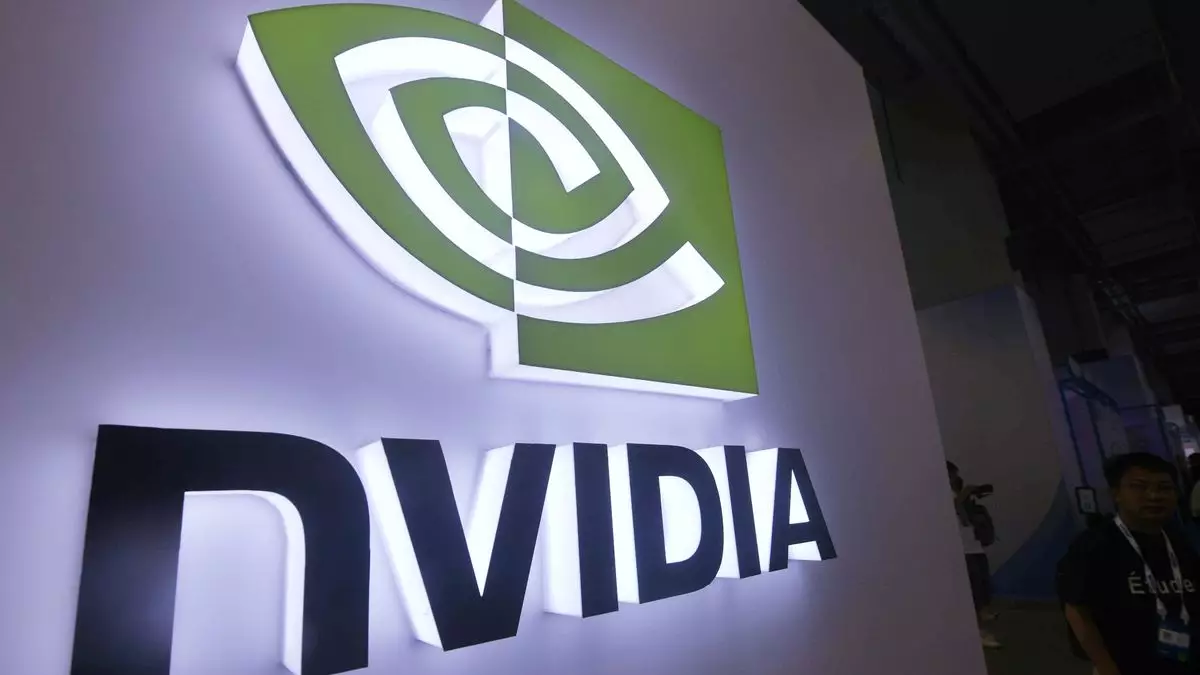In a significant development within the global technology landscape, China has officially initiated an antitrust investigation into Nvidia, specifically examining the implications of its 2020 acquisition of Mellanox Technologies, an Israeli chip manufacturer. This probe comes in the wake of reports suggesting that the transaction, valued at $7 billion, was greenlighted by Chinese authorities on the condition that Nvidia would adhere to certain stipulations. Chief among these conditions was a requirement that Nvidia refrain from engaging in discriminatory practices against Chinese firms and that Mellanox proactively share new product samples with competitors within a stipulated time frame. Such scrutiny highlights the ongoing tensions that have emerged as the U.S. and China vie for supremacy in the tech arena.
The backdrop for this investigation is the series of stringent U.S. sanctions that have curtailed Nvidia’s ability to export its products to China. In response, the company pursued innovative strategies to circumvent these restrictions. A notable example is the rapid development of the RTX 4090 D model, specifically designed for the Chinese market in 2023. This new product was aimed at meeting the demand for high-performance components while technically complying with U.S. export controls. However, it was met with considerable criticism from U.S. officials, including Commerce Secretary Gina Raimondo, who voiced concerns that such tactics could enable China to access advanced AI chips, undermining national security.
The U.S. government’s reaction underscores a broader tension around technological competition and national security, reflecting a mindset that prioritizes safeguarding cutting-edge advancements from potential adversarial use. It further signals an increasing commitment from the U.S. to block technological access that might enhance China’s capabilities in critical areas, notably artificial intelligence and semiconductor manufacturing.
Nvidia’s financial relationship with China has been a cornerstone of its revenue model, previously contributing significantly to the company’s overall profits. The shift in revenue share is stark, with reports highlighting a drop from 26% to only 17% in a two-year span. This decline elucidates the growing competitiveness of Chinese chip manufacturers, which have gained ground in the semiconductor market as the geopolitical landscape continues to evolve. The antitrust investigation could further complicate Nvidia’s operational landscape in China, potentially restricting its market opportunities and affecting revenues that are critical to its growth trajectory.
This investigation into Nvidia is emblematic of China’s broader strategy of countering U.S. sanctions aggressively. Recent reports indicate that alongside the Nvidia inquiry, China has enacted bans on various materials essential for semiconductor manufacturing, such as gallium and germanium. These materials are pivotal in the development of technologies integral to both semiconductors and electric vehicles, suggesting that China is willing to leverage its resources in an effort to establish a more balanced technological playing field. This pushback against U.S. sanctions illustrates a calculated approach where resource control is utilized as a bargaining chip within the global semiconductor narrative.
In light of these developments, Nvidia has publicly asserted its commitment to fair business practices, emphasizing that its success stems from meritocratic principles and customer choice. The company has also expressed readiness to engage with regulators and address any concerns that may arise during the investigation process. However, as the scrutiny continues, Nvidia faces an uphill battle not only in terms of regulatory compliance but also in maintaining its market position amidst burgeoning domestic competition within China and ongoing geopolitical strife.
As Nvidia navigates these challenges, its future in the Chinese market hangs in a delicate balance, influenced by both the outcomes of the investigation and the broader context of U.S.-China relations. The evolving scenario serves as a vivid reminder of the intricate interplay between technology, economics, and international relations, with implications that extend beyond merely business concerns into the realm of global stability and security. As the situation unfolds, analysts and stakeholders will be closely watching for developments that could shape the future of one of the world’s foremost technology companies.

